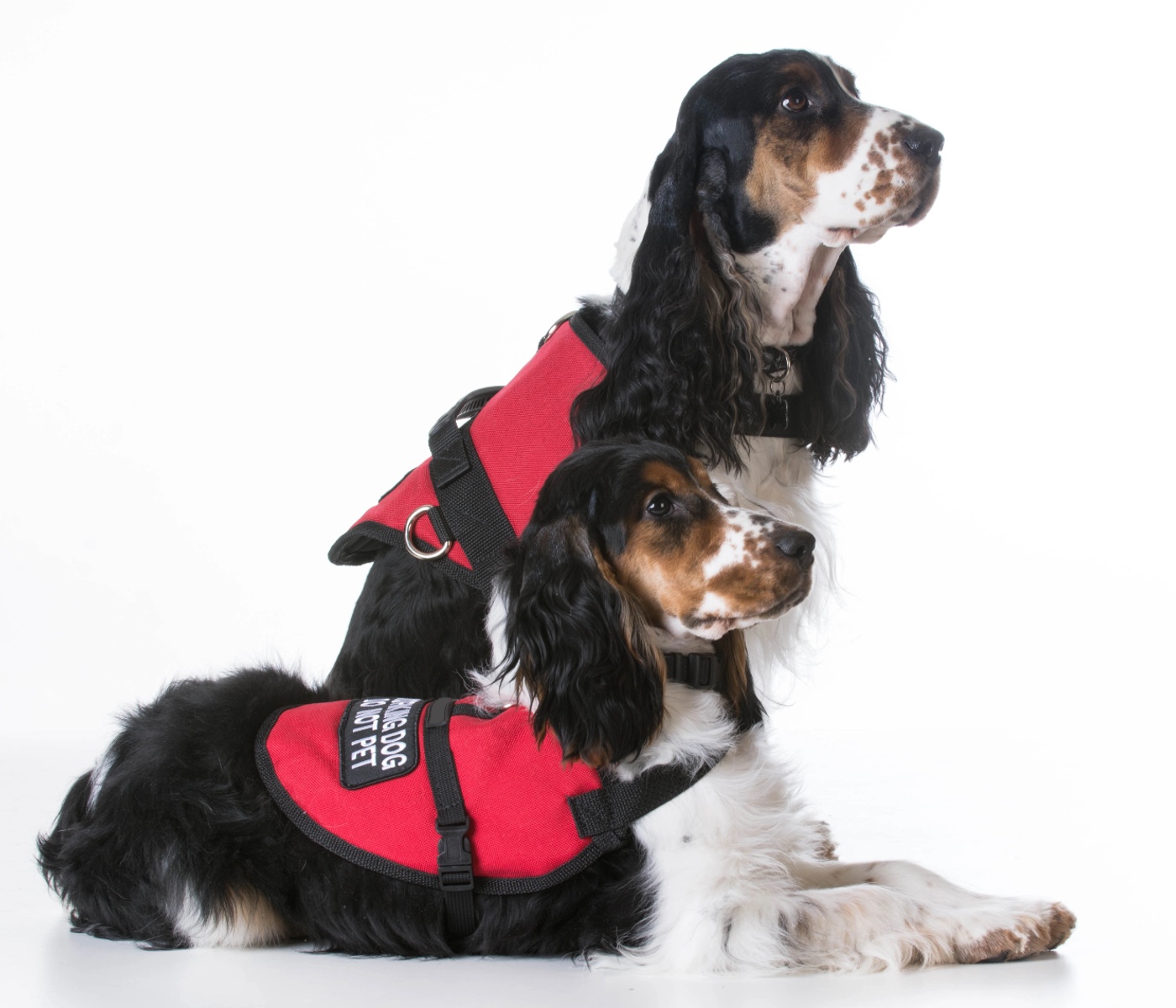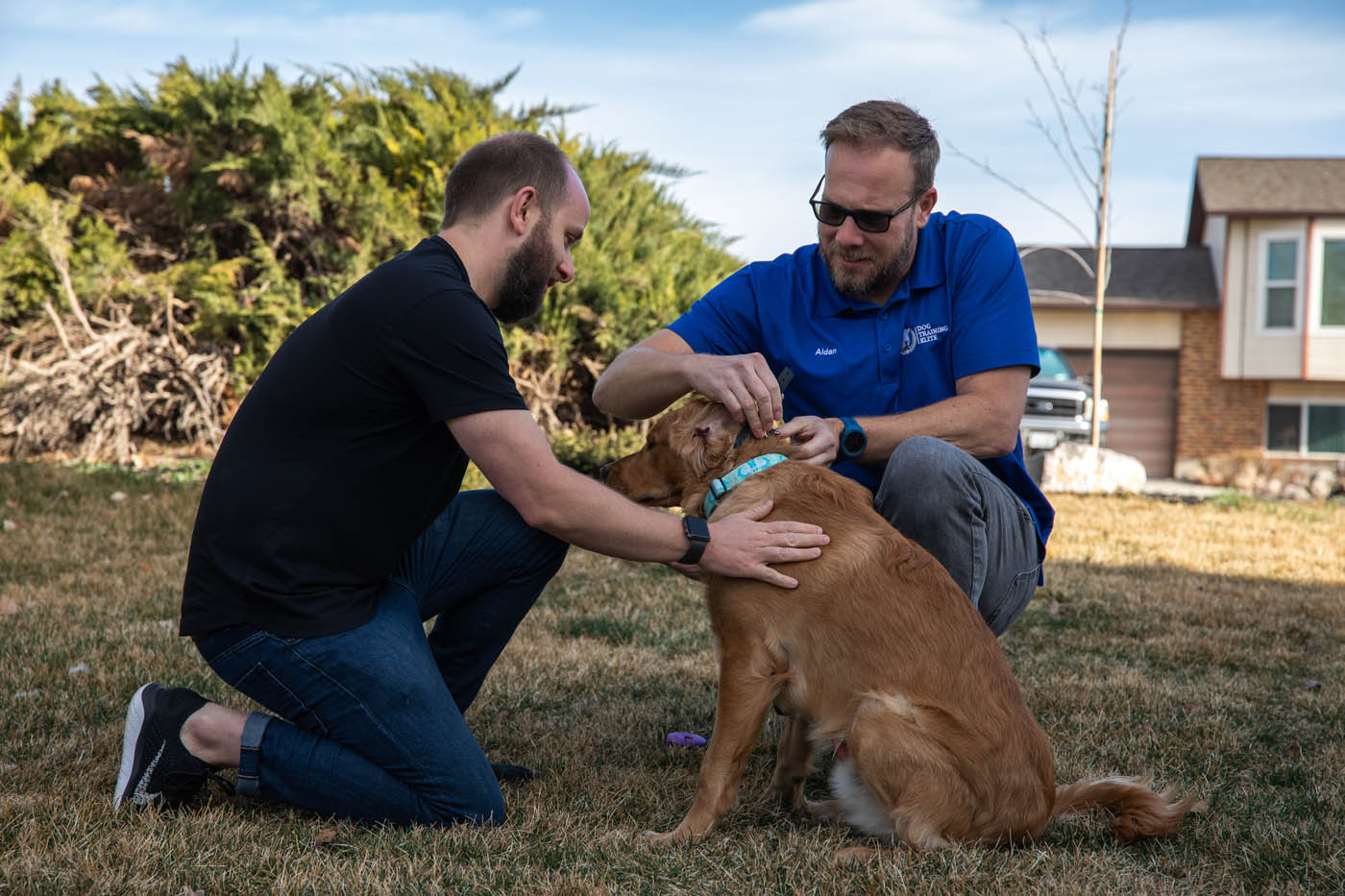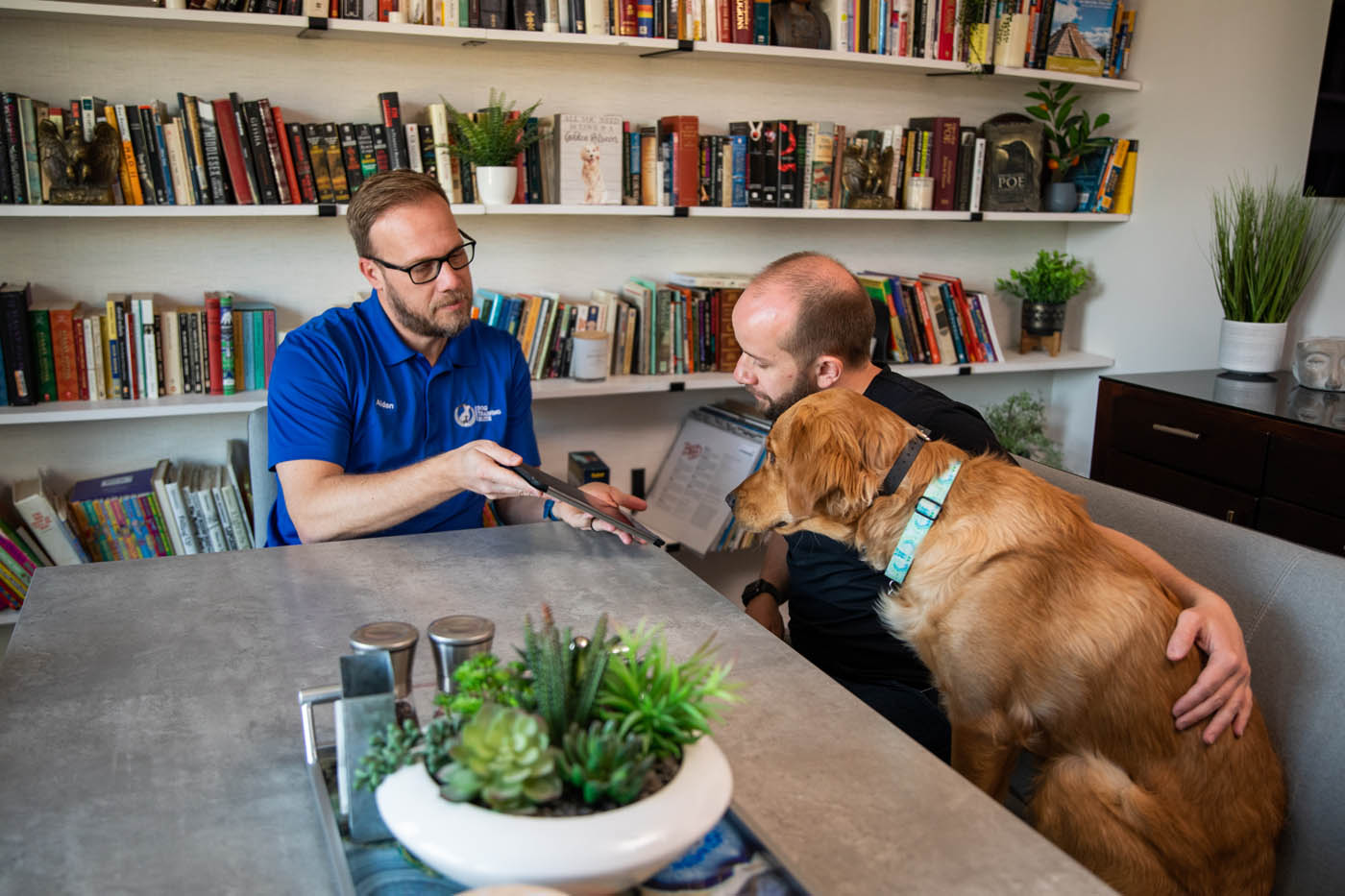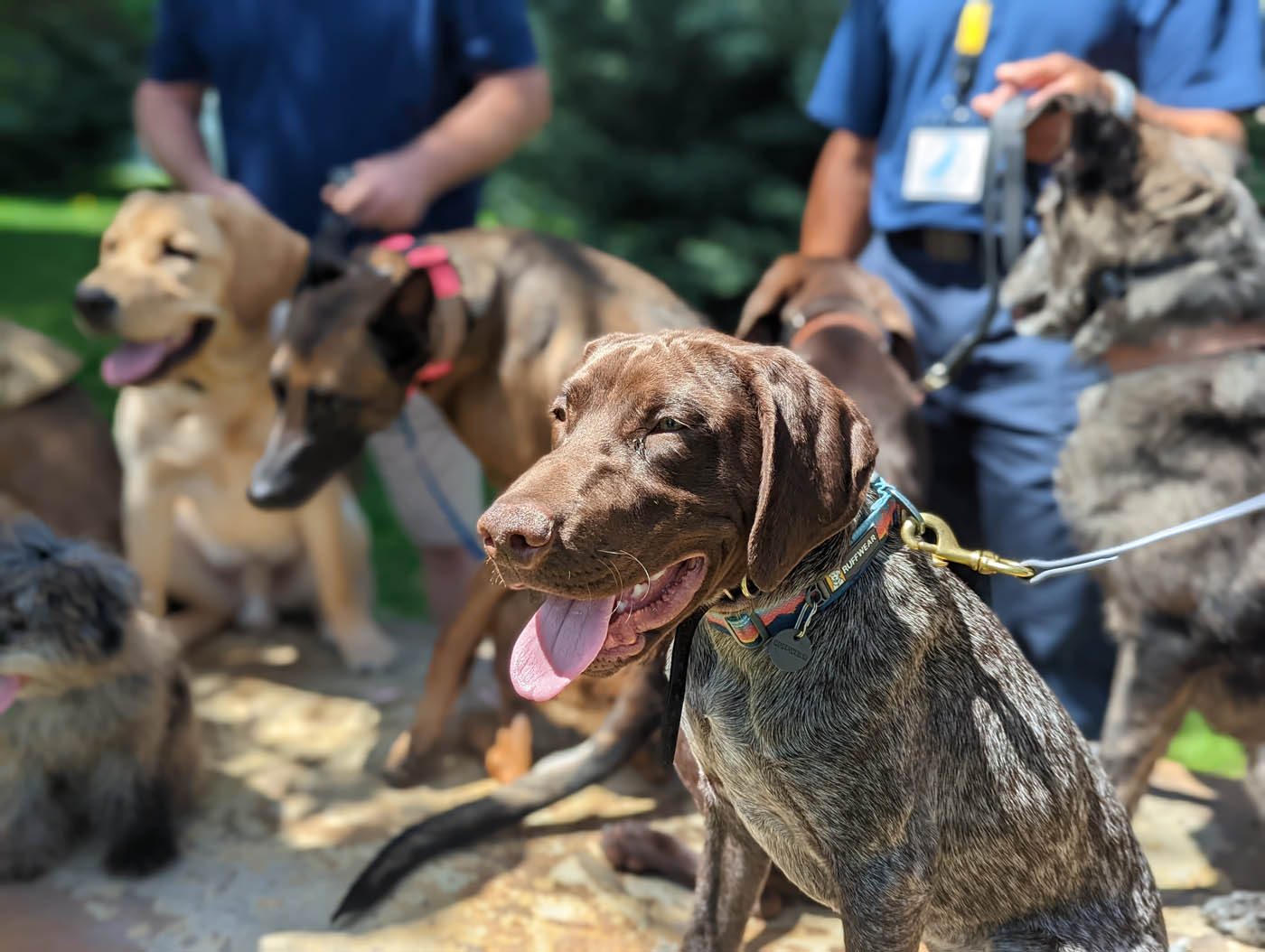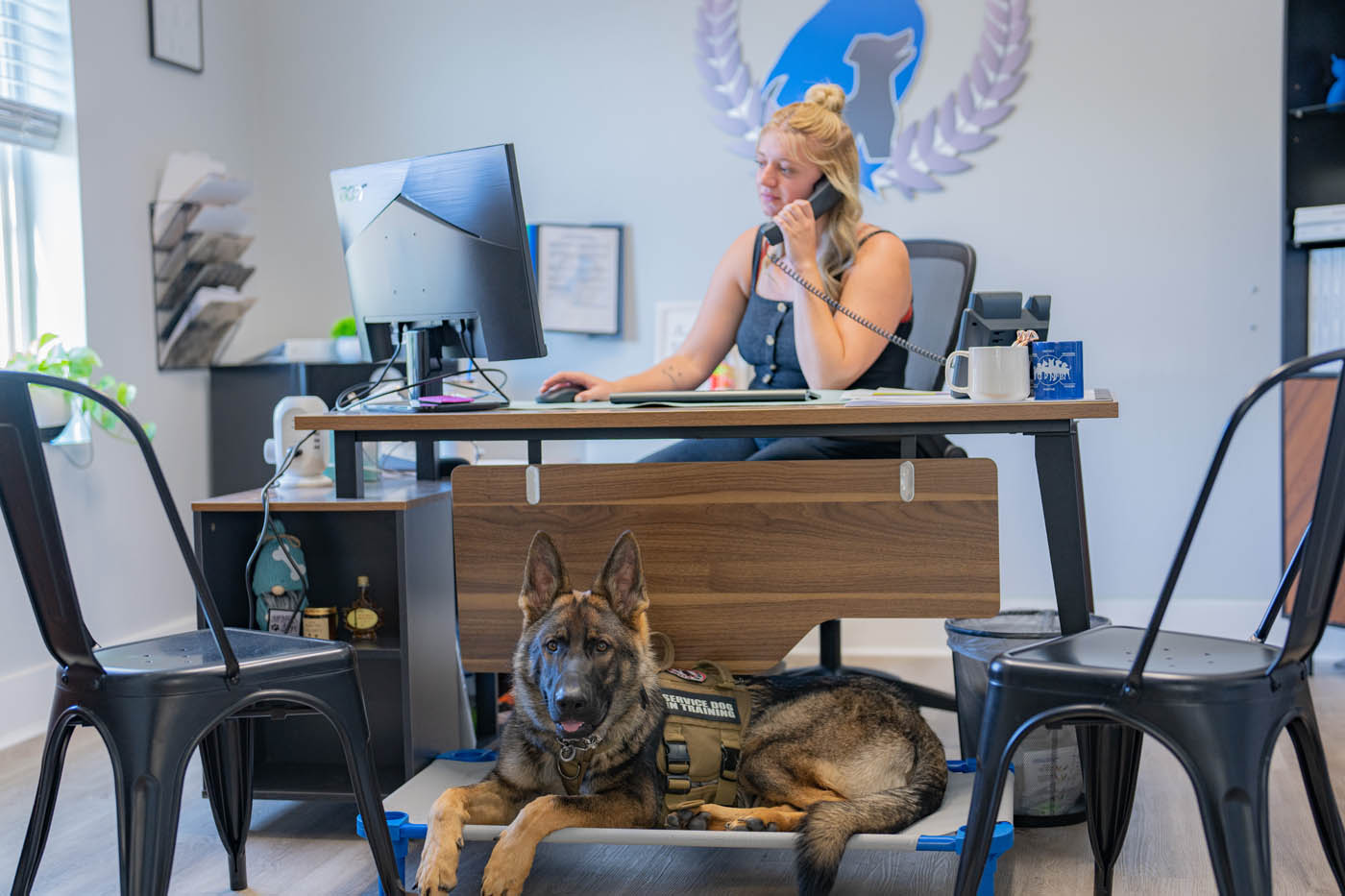If you're in the market for a service dog, you've likely noticed that these four-legged companions come at a much higher cost than the average dog. While all dogs are a source of love and companionship, service dogs can change a life. Service dogs are highly trained to perform tasks, alert others to potential danger and assist disabled individuals. These talented animals are considered "working dogs" due to their high level of responsibility. Extensive training goes into developing well-behaved, intelligent service dogs. Specialized training for autism, PTSD, blindness and other disabilities requires additional training. It's easy to see why service dogs cost more than companion dogs, but many owners of these talented animals consider their four-legged assistants priceless.
New pet owners often wonder if they can train a new puppy to be a service dog and avoid the costs of purchasing a well-trained service dog. Service dog training requires professional techniques as well as breed and temperament knowledge. Not just any dog can be trained to perform the demanding tasks of service work. The best option is to purchase a preselected puppy that has been raised to prepare for life as a service dog. Once you have selected your service puppy the next step is specialized training for your unique needs. This allows you to create a strong bond with your new pet and for the puppy to learn it's required work. Service animals can fulfill a variety of roles, including:
Autism Companion
Children with autism find support and loving companionship with service dogs. These animals can be trained to calm the child down with deep pressure therapy and alert guardians when necessary. Anchoring reduces the chance of wandering and service dogs can be trained to track a child with autism that has gone missing. The intelligence and constant companionship offered by service dogs makes life easier for children with autism spectrum disorder and their families.
Diabetic Alert
Service dogs can provide balance, safety and support for individuals with diabetes. Our four-legged companions can be trained to use their incredible sense of smell to pick up on the chemical changes that occur when blood sugar changes. A diabetic support dog alerts its handler and others nearby if these changes occur.
Mental Health Therapy Dog
Stress, anxiety and depression are common mental health issues. While therapy and medication are standard treatments, therapy dogs are increasingly popular. Mental Health therapy dogs can be trained to bring handlers out of a panic attack, redirect negative behaviors, offer a sense of calm and increase physical activity and healthy habits. Therapy dogs are especially useful for veterans or others suffering from PTSD.
Mobility Assistance
Old age, blindness, deafness, traumatic injury and other disability greatly reduces mobility and independence. Introducing a service dog into the life of a disabled individual can enhance independence and bring joy. Mobility assistance dogs can be trained to open doors, turn lights on and off, retrieve items, aid in balance and walking and so much more.
Dogs are incredibly intelligent animals and professional trainers are discovering more about their unique abilities every day. If you are interested in finding a service dog for yourself or a loved one, it's important to work closely with a trainer to find the dog that is the right fit. The Dog Training Elite service puppy training program in Pensacola, pairs families with preselected puppies and trains them to fit their special needs. We believe this approach is best for both the family and the puppy and encourages a deep, loving bond.
